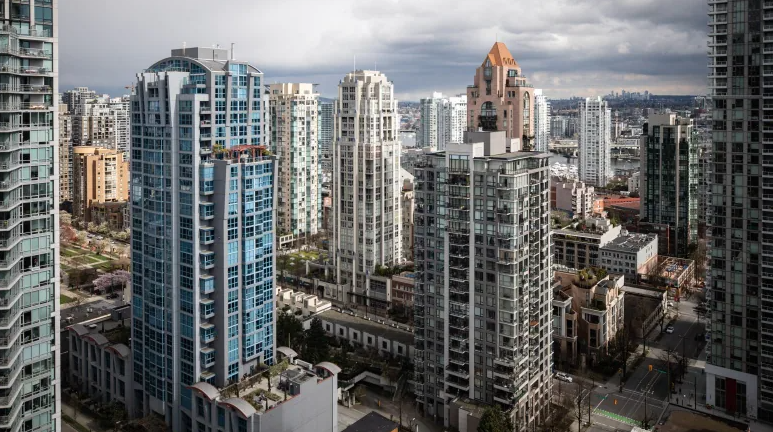
10 Benefits for Strata Corporations Working with a Professional Strata Management Company
Strata living is a great option for those who want to live in busy areas without the costs of a single residence, and strata owners can benefit from strata management, however for many self-managed strata corporations, the responsibility can become overwhelming. Professional strata management can provide more than just relief – it can also increase the benefits that strata owners experience. From keeping up with changing strata legislation to trimming strata insurance costs to proactively managing issues, a strata manager provides crucial services that ensure strata schemes remain compliant, efficient and up-to-date. This allows strata owners to not only understand their rights in accordance with strata law but also enjoy all its benefits while avoiding costly disputes which often result from self-management. In short, employing a professional strata management company is an effective way of reinstating order within your residential or commercial strata.
1. Increased efficiency: A professional property management company has the experience and resources to handle the day-to-day operations of a strata corporation efficiently, freeing up time for the strata council to focus on long-term planning and decision-making.
Strata living presents wonderful opportunities for residents, but also requires a significant amount of planning and management that strata councils must undertake. For strata owners considering self-management, there can be considerable costs associated with their strata corporation’s operations. Hiring a professional strata management company is a cost-effective way to ensure that strata operations are executed efficiently and smoothly. Such companies have expertise in strata regulations, and important resources including strata lawyers and financial advisors. This allows strata councils to save time and focus on the bigger picture, helping them to make decisions that will benefit the strata owners into the future.
2. Improved communication: A professional property management company can act as a liaison between the strata council and the residents, ensuring that important information is relayed effectively and that residents’ concerns are addressed promptly.
When strata owners are self-managed, attention to communication can be overlooked. Without the expertise of a professional strata management company, strata living costs may increase and strata owners could go without important updates. Professional strata management companies provide an invaluable service as a liaison between strata councils and strata owners, facilitating improved communication resulting in reduced strata costs, clear expectations from strata councils, and increased satisfaction from strata owners.
3. Reduced liability: A professional strata management company can help a strata corporation comply with relevant laws and regulations, reducing the risk of legal issues arising.
By engaging a professional strata management company, strata corporations can protect themselves against liability and manage the risks of legal issues arising. This ensures that the responsibility is effectively managed throughout each step of the process and that strata owners are insured and compliant with all relevant laws and regulations. The comprehensive guidance offered by a professional strata management company provides clarity to the strata owners and reassurance that liability will be reduced or avoided altogether.
4. Enhanced financial management: A professional strata management company can provide financial expertise and assistance with budgeting, billing, and collections, helping the strata corporation to better manage its finances.
Financial management is a critical area of focus for strata corporations and engaging a professional strata company can provide expertise and advice to effectively manage financials. Their services include detailed bookkeeping, accounting, monthly financial statements, including financial tracking and control of budgeting, billing, and collections. Furthermore they can assist with month and year-end financial reporting such as income statements, balance sheets and depreciation reports. This will enable the strata corporation to better understand their financial position as well as plan for future growth or expansion.
5. Increased property value: By maintaining the property to a high standard and addressing any issues promptly, a professional strata management company can help to increase the value of the strata corporation’s assets.
High-quality property management is essential in order to maximize property value and potential resale prices. An experienced strata management firm can assist property owners in understanding how regular maintenance, inspections and assessment play an important role in helping their property retain or even increase its property value over the long-term. With a bit of effort and attention given towards the collection of assets, the property’s owners can benefit from increased property values, adding value for years to come.
6. Better vendor relationships: A professional strata management company has the connections and knowledge to secure competitive rates from vendors and contractors, helping the strata corporation save money on maintenance and repair costs.
Developing and leveraging relationships with vendors is one of the key strategies employed by professional property managers to benefit strata corporations and ultimately save money. By cultivating consistent partnerships with vendors, a business can better negotiate contract terms and rates while saving time on the procurement process. These vendors help provide maintenance and repair services that can assist in avoiding unexpected costs due to degradation, depreciation, or damages caused by neglect. Ultimately, having strong vendor relationships adds value to the bottom line of strata corporations by reducing uncovered losses for each upkeep cycle.
7. Enhanced security: A professional strata management company can implement security measures and protocols to ensure the safety and security of residents and the property.
Property security is an important factor in deterring crime and ensuring the safety and security of all residents. The professional strata management company has the ability to create security patrols, install alarms and access control systems, as well as establish standard operating procedures that protect tenants, visitors, and the property itself. The security team can also identify intruders or trespassers via video cameras placed throughout the complex and can carry out investigations into suspicious activity. In addition, they can maintain security standards among all neighborhoods located within the property to ensure peace of mind for every resident. With enhanced security protocols put in place by a reliable team, residents of any property have nothing to fear when it comes to their safety.
8. Improved resident satisfaction: By addressing residents’ needs and concerns in a timely and effective manner, a professional strata management company can improve overall satisfaction among residents.
Professional strata management companies are in a unique position to help strata owners improve overall satisfaction among residents. Their expertise and years of experience in strata management ensure that their advice is tailored to the needs of strata communities. With an effective time-management system, strata managers can address residents’ concerns quickly and efficiently, satisfying their requirements in a timely manner. Particular attention should also be given to establishing clear communication protocols as early as possible; through regular, open dialogue with residents, strata managers can better understand the issues at hand and provide meaningful solutions. By implementing these strategies, strata owners can rest assured that they are one step closer to improving resident satisfaction.
9. Disaster management: In the event of a natural disaster or other emergency, a professional property management company can help the strata corporation to manage the situation effectively and minimize disruption.
The fast response of a professional strata management company in the face of any natural disaster or emergency can make all the difference. From wildfires and earthquakes, to floods and other occurrences, a well-constructed disaster plan will help to minimize disruption and alleviate stress for everyone involved. Professional strata management teams understand the importance of staying up-to-date on relevant insurance and compliance regulations, while they are able to manage any crisis that arises in an efficient manner. With their expertise and fast response time, strata management companies provide invaluable peace of mind for strata corporations looking to be prepared for any situation.
10. Expertise and knowledge: A professional property management company has the expertise and knowledge to provide guidance and support to the strata council on a wide range of issues, from maintenance and repair to legal and financial matters.
Working with a professional strata management company provides expertise and knowledge that the strata council otherwise may not have. Experience, resources and expertise are invaluable advantages that any company must take into consideration when using a provider of services. A professional strata management team supplies expertise in all areas from legal advice to maintaining and repairing buildings, as well as elements of finance and accounting. Utilizing the expertise that they offer will help the strata stay organized while making prudent decisions by understanding the overall cost-benefit analysis of potential resolutions to problems. A professional team works with both understanding and pragmatism towards finding solutions and helping ensure all regulations are adhered to responsibly, ultimately enhancing your property experience as it pertains to working with and maintaining properties successfully.
Not Legal Advice - The material provided on the StrataPress website is for general information purposes only. It is not intended to provide legal advice or opinions of any kind and may not be used for professional or commercial purposes. No one should act, or refrain from acting, based solely upon the materials provided on this website, any hypertext links or other general information without first seeking appropriate legal or other professional advice. These materials may have no evidentiary value and should be checked against official sources before they are used for professional or commercial purposes. Your use of these materials is at your own risk.





